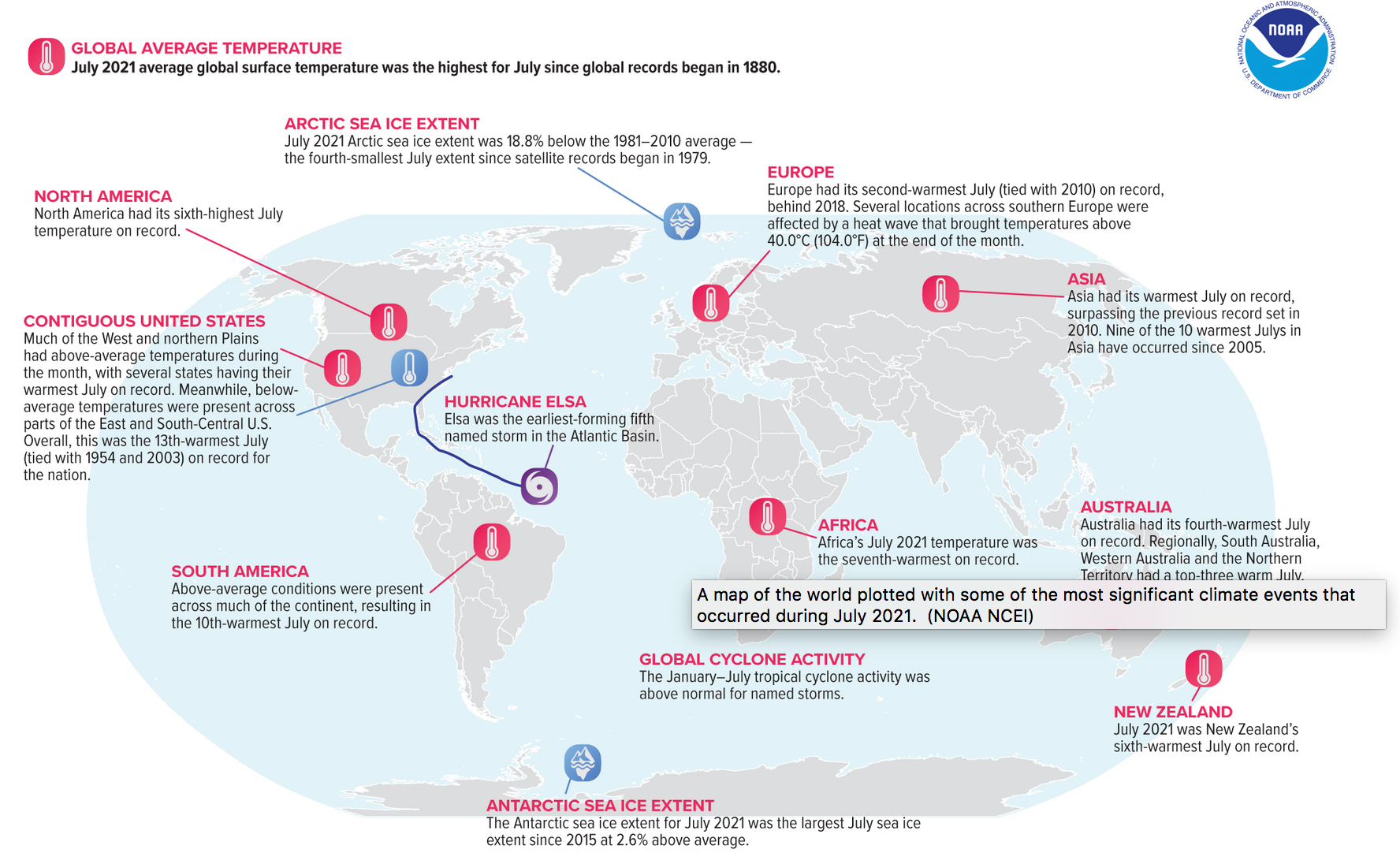July 2021 officially the hottest month ever recorded on Earth
Global land and sea temperatures were 1.67F above the average for July, making it the hottest month since records began 142 years ago
Your support helps us to tell the story
From reproductive rights to climate change to Big Tech, The Independent is on the ground when the story is developing. Whether it's investigating the financials of Elon Musk's pro-Trump PAC or producing our latest documentary, 'The A Word', which shines a light on the American women fighting for reproductive rights, we know how important it is to parse out the facts from the messaging.
At such a critical moment in US history, we need reporters on the ground. Your donation allows us to keep sending journalists to speak to both sides of the story.
The Independent is trusted by Americans across the entire political spectrum. And unlike many other quality news outlets, we choose not to lock Americans out of our reporting and analysis with paywalls. We believe quality journalism should be available to everyone, paid for by those who can afford it.
Your support makes all the difference.July 2021 has earned the “unenviable distinction” of being confirmed as the hottest month ever recorded.
According to new data released by National Oceanic and Atmospheric Administration (NOAA), global land and ocean temperatures were 1.67F (0.93 C) above the 20th-century average of 60.4F (15.8C), making it the hottest July since records began 142 years ago.
“In this case, first place is the worst place to be,” said NOAA Administrator Rick Spinrad.
“July is typically the world’s warmest month of the year, but July 2021 outdid itself as the hottest July and month ever recorded.
“This new record adds to the disturbing and disruptive path that climate change has set for the globe,” Dr Spinrad said.
JUST IN: It’s official. #July was Earth’s hottest month on record. https://t.co/xKGLizOml4
— NOAA (@NOAA) August 13, 2021
via @NOAANCEIclimate #StateOfClimate #July2021
(Tweet 1 of 5) pic.twitter.com/Qqbu6CLqVt
July’s temperatures were 0.02F (0.01C) higher than the previous record set in July 2016. That record was then tied in 2019 and 2020.
The new data from the NOAA found the Northern Hemisphere had its hottest July in terms of land surface temperature ever, surpassing the previous record in 2012. It was 2.77F (1.54 C) higher above average.
Asia had its hottest ever July, while Europe experienced its second hottest, both beating records from 2010.

The data comes days after the release of a report from the UN’s Intergovernmental Panel on Climate Change (IPCC) which warned the world is running out of time to make drastic cuts to greenhouse gas emissions and avert devastating climate breakdown.
The IPCC report, compiled by more than 200 scientists, detailed how the impacts of rising temperatures could be “irreversible for centuries to millennia”.
The IPCC said it had found “unequivocal” evidence that humans are to blame for rapidly rising land and ocean temperatures.
It was the most comprehensive assessment yet of the threat from climate change by the UN panel.
Climate change is also fuelling the wildfires blazing across the globe.
From the Dixie Fire in California, now that state’s largest ever single blaze, to the devastating fires in Turkey and Greece, the record temperatures and drought have helped fires burn unabated.
The summary findings, from the first chapter of the IPCC’s sixth assessment report, come just three months before world leaders are due to meet in Glasgow for the global climate summit, Cop26.

Join our commenting forum
Join thought-provoking conversations, follow other Independent readers and see their replies
Comments